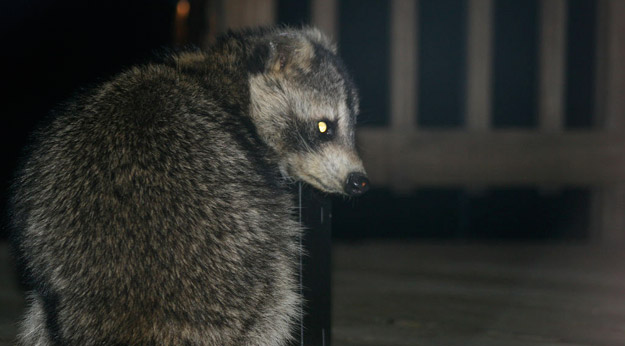Rodent Exclusion
By Chris Williams on February 7, 2014.

John Maher: Hi. My name is John Maher. Today I’m here with Zack Ciras, a service technician at Colonial Pest, pest control company serving eastern Massachusetts, and southern New Hampshire, and Maine. Today we’re talking about rodent exclusion.
Welcome, Zack.
Zack Ciras: Thank you.
John: Zack, what is the purpose of a rodent exclusion?
Zack: Rodents in your house is not a good thing, it’s a problem. What a rodent exclusion is intended to do is solve that problem. We can maintain the problem. We can control the pest, that’s why it’s called pest control. But to really solve the problem, we need to exclude them. That means, keep them out from coming into your house in the first place.
John: As opposed to, “They’re in my house, and I need to get rid of them,” this is trying to prevent them from even getting into your house in the first place.
Zack: What we do with the rodent exclusion is identify any problems with rodents inside the house already. We do eradicate those rodents from the house, but the long term goal of a rodent exclusion is to keep them out in the future.
John: What’s involved in performing a rodent exclusion on a house?
Zack: Identifying any of the holes, the primary holes where they are actively running in and out of the home, where they’ve entered in the past.
Secondary holes, that look like they might be a possible entry point, any place that looks like it could be degraded in the near future, and you address all these areas. It’s really a full, a complete, corner to corner up and down observation of your home.
Any possible problems with the foundation, with the wood siding any possible way so they can get in, we address those all. It’s really very complete.
John: You mentioned that the wood siding and the foundation, what are some of the typical places that rodents can get into your house?
Zack: The corners are a famous weak spot, where the corners of the siding or the trim come together. A lot of times when the houses are built, especially houses that were built in the building booms of late, might not have been built as airtight as they could have been. Those are areas also just naturally degrade over time. Water gets in there, and plants get in there, and degrade those spots.
John: Right. Is every home a good candidate for a rodent exclusion?
Zack: Not every home unfortunately but we do have programs. We have a killer maintenance program, that can help take care of possible future problems with a home that can’t be excluded.
If you have a rubble foundation that really needs major repairs, more than cosmetic repairs in small openings, that might exclude you from being a good candidate of exclusion.
John: What creatures can you keep out with a rodent exclusion, and what does it not keep out?
Zack: The main creatures that we’re focused on for rodent exclusion are mice, rats, squirrels, raccoons, all the big guys. Small insects, ants, and things like that might not be stopped by the meshing that we use, by the certain wood processes that we use. But any kind of rodent from mouse size to larger, we can keep out.
John: What’s the difference between a rodent exclusion, and a conventional mouse treatment?
Zack: The conventional mouse treatment does include some minor exclusion. We try to find where the mice are coming in, or the rats, or whatnot are coming in. With a full exclusion job, it’s a much more permanent, much more comprehensive look at the house. It really is a more lengthy process to keep them out.
John: Zack, thanks very much for speaking with me.
Zack: Thank you.
John: For more information, you can visit the website at colonialpest.com, or call 1 800 525-8084 for a free quote.
Photo credit: lynx81 / Foter / CC BY-NC-ND